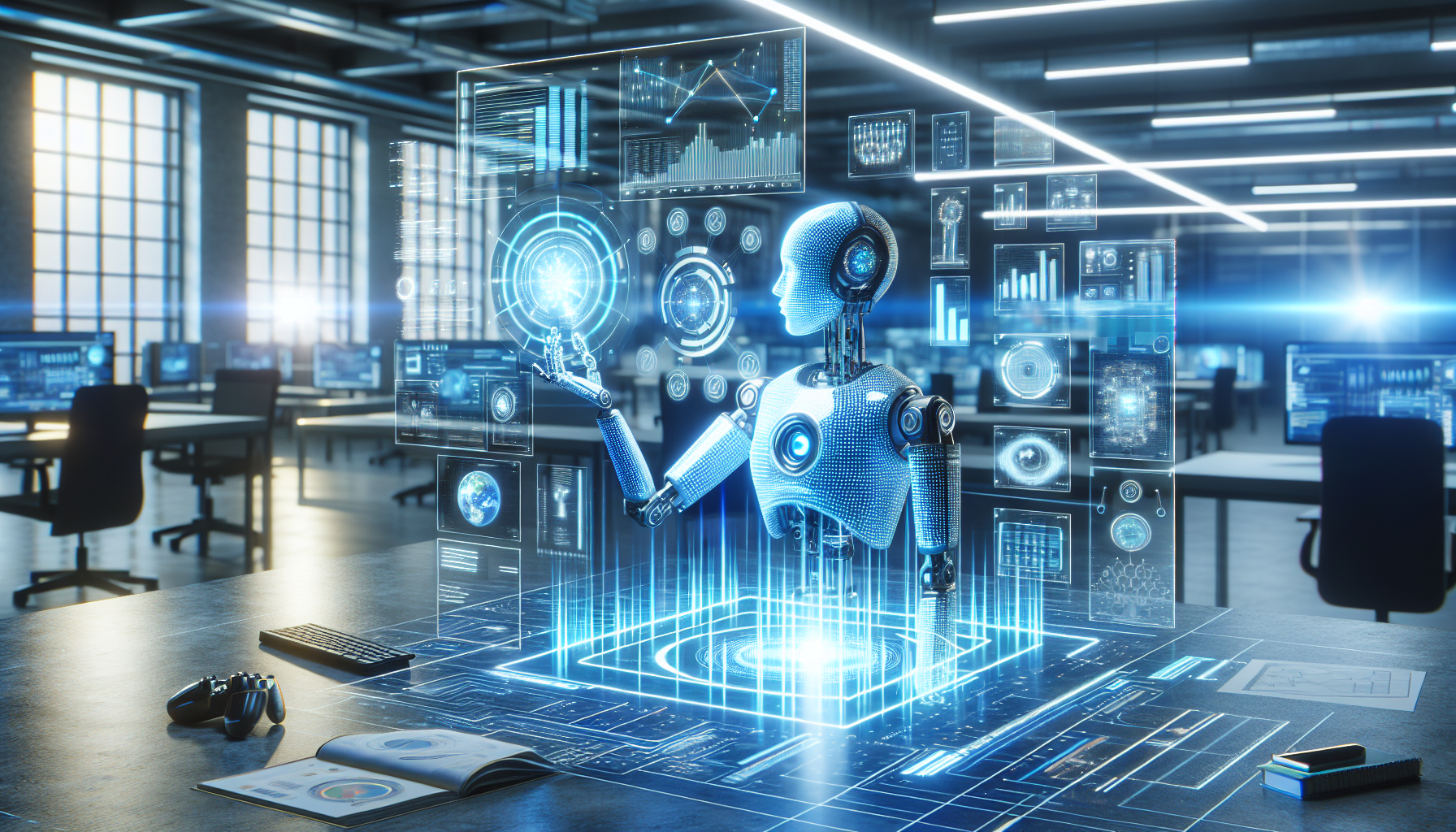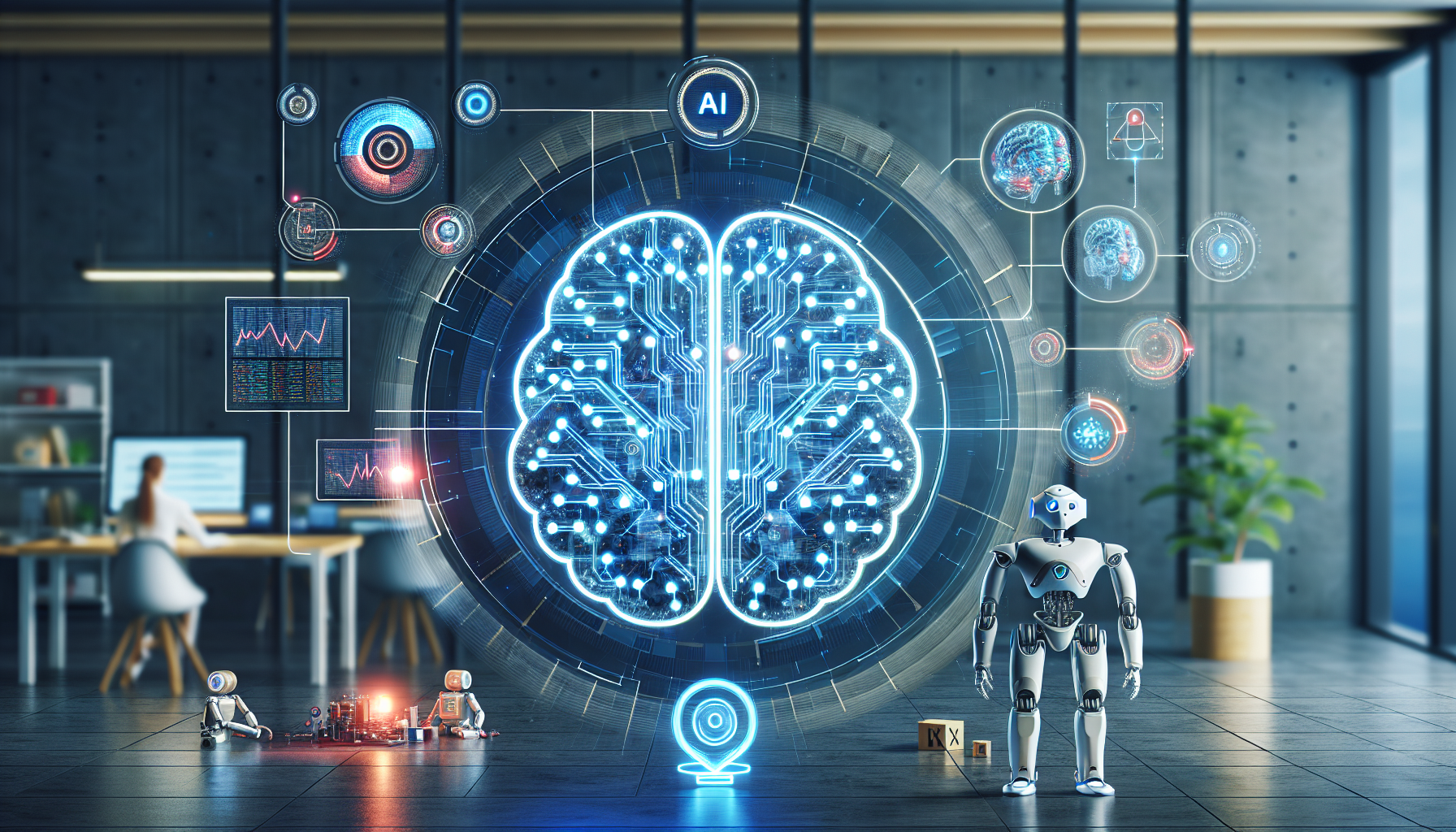
AI in Entertainment: Revolutionizing Media and Gaming with Unprecedented Creativity
November 23, 2025
Artificial Intelligence stands at the forefront of a transformative wave reshaping the entertainment industry. From sophisticated algorithms that generate personalized content recommendations to AI-driven characters in video games that learn from player behavior, the impact of AI on media and gaming is profound and multifaceted. This shift invites a critical examination of both the opportunities and challenges it presents to creators, consumers, and the industry at large.
Historically, entertainment content was a one-size-fits-all affair, with producers crafting narratives that appealed to the broadest possible audience. AI technology, however, is changing this paradigm. Machine learning algorithms analyze vast amounts of data to understand individual preferences, enhancing user experiences by providing content tailored to specific tastes. Streaming platforms have mastered this art, using AI to suggest movies and shows that align with viewers' watching patterns and interests, thereby increasing engagement and satisfaction.
In gaming, AI has ushered in a new era of immersive experiences. Non-player characters (NPCs) are no longer bound by scripted sequences. Instead, they exhibit behavior that evolves based on interactions with players, creating a dynamic and unpredictable environment. This adaptability not only enhances realism but also heightens the emotional connection between players and the virtual world. Moreover, AI-driven procedural content generation allows developers to create vast, intricate worlds with complex storylines, offering players unique adventures every time they play.
The benefits of AI in entertainment extend beyond personalization and immersion. In the realm of content creation, AI tools are assisting writers and artists in generating ideas and overcoming creative blocks. Machine learning models can analyze successful scripts and predict elements that resonate with audiences, offering invaluable insights during the creative process. Furthermore, AI is employed in editing and post-production, automating labor-intensive tasks and enabling creators to focus on refining their vision.
Despite these advancements, the integration of AI in entertainment raises important ethical and practical considerations. The reliance on algorithms for content curation introduces the risk of echo chambers, where users are exposed only to content that reinforces their existing preferences. This phenomenon can lead to a homogenization of experiences, stifling the diversity of viewpoints that are crucial for cultural richness and understanding.
Moreover, the use of AI in creating deepfake technology poses significant challenges. While this technology has legitimate applications in visual effects and storytelling, it also presents potential for misuse, such as generating misleading content that can erode trust in media. Balancing innovation with responsibility is crucial to ensure that AI enhances rather than detracts from the integrity of the entertainment industry.
The democratization of content creation through AI tools also warrants scrutiny. AI-driven platforms enable amateur creators to produce high-quality content without the need for extensive resources. While this accessibility fosters creativity and diversity, it also contributes to an oversaturation of content. In a landscape where anyone can be a creator, the challenge becomes distinguishing quality content amidst the noise.
As AI continues to advance, the entertainment industry must grapple with questions about the role of human creativity. Will AI augment human ingenuity, or will it render traditional forms of creative expression obsolete? The answer lies in a collaborative approach where AI is seen as a tool that complements human creativity rather than replacing it. By leveraging AI's capabilities to handle repetitive tasks and analyze data, creators can focus on the nuanced aspects of storytelling and artistry that machines cannot replicate.
The transformative potential of AI in entertainment is undeniable, offering an array of possibilities that were once confined to the realm of science fiction. As we navigate this rapidly evolving landscape, it is imperative to foster an environment where innovation thrives alongside ethical considerations. How we choose to integrate AI into media and gaming will shape the cultural narratives of tomorrow, presenting an opportunity to redefine entertainment in ways that are inclusive, engaging, and profoundly human.


